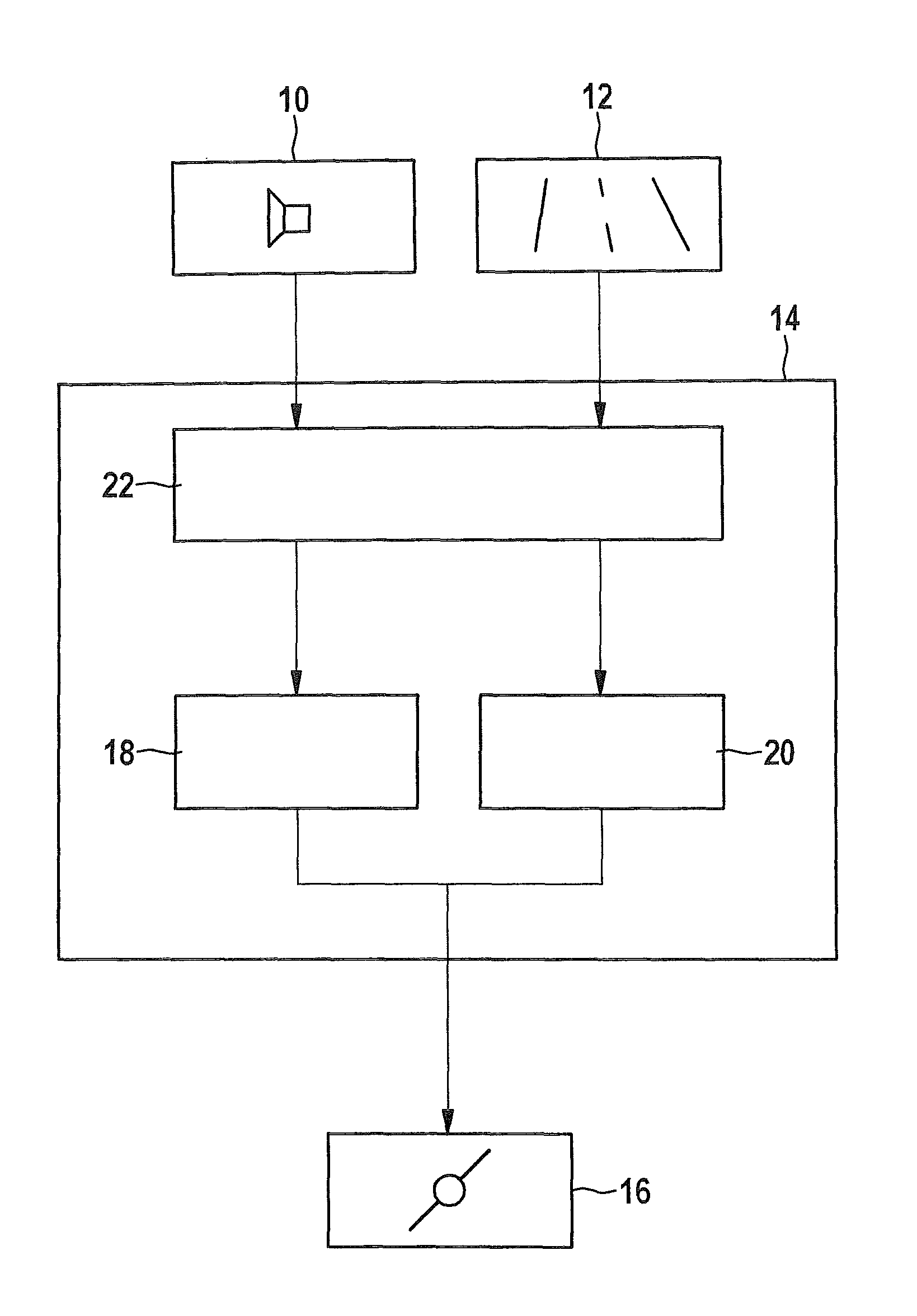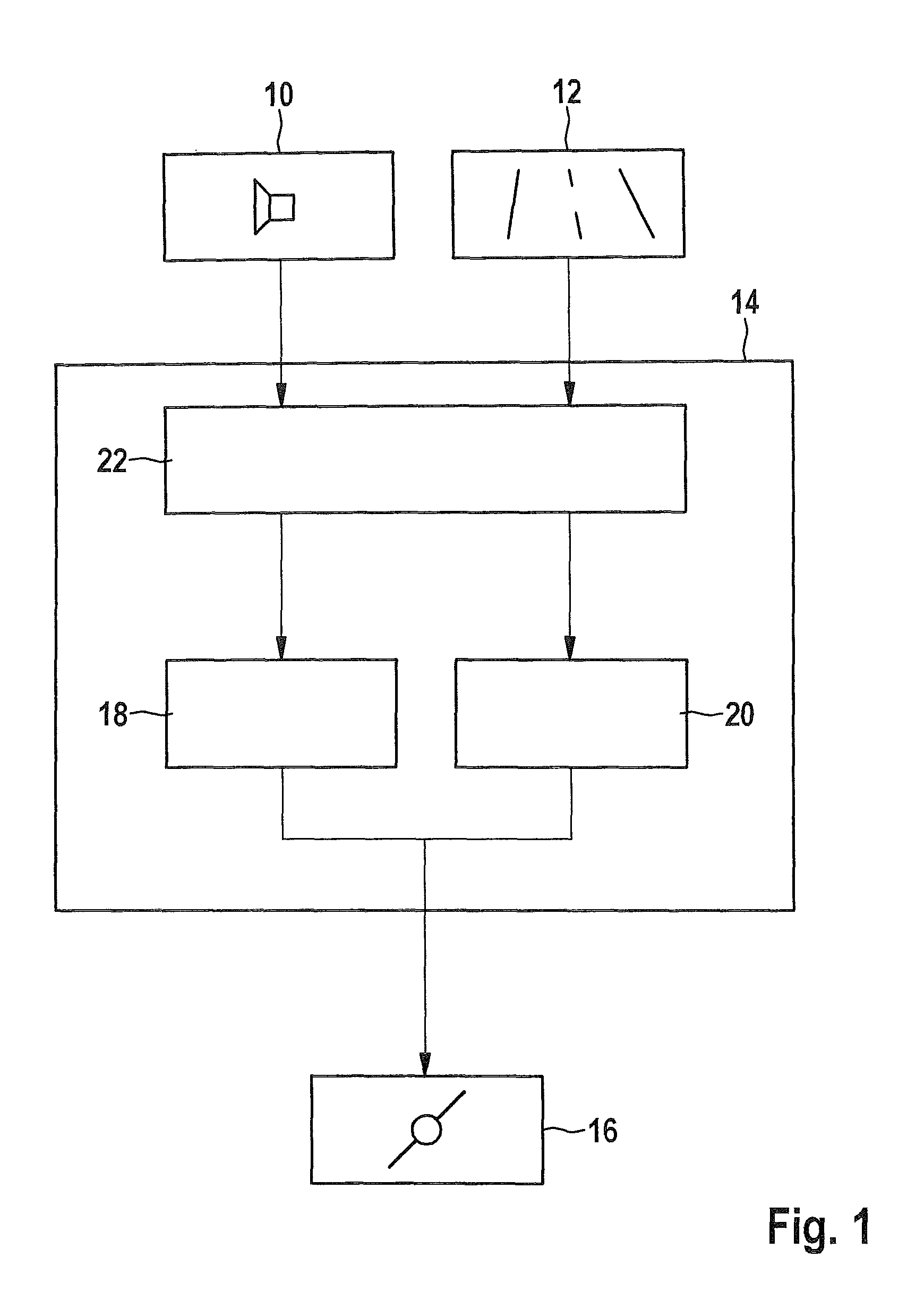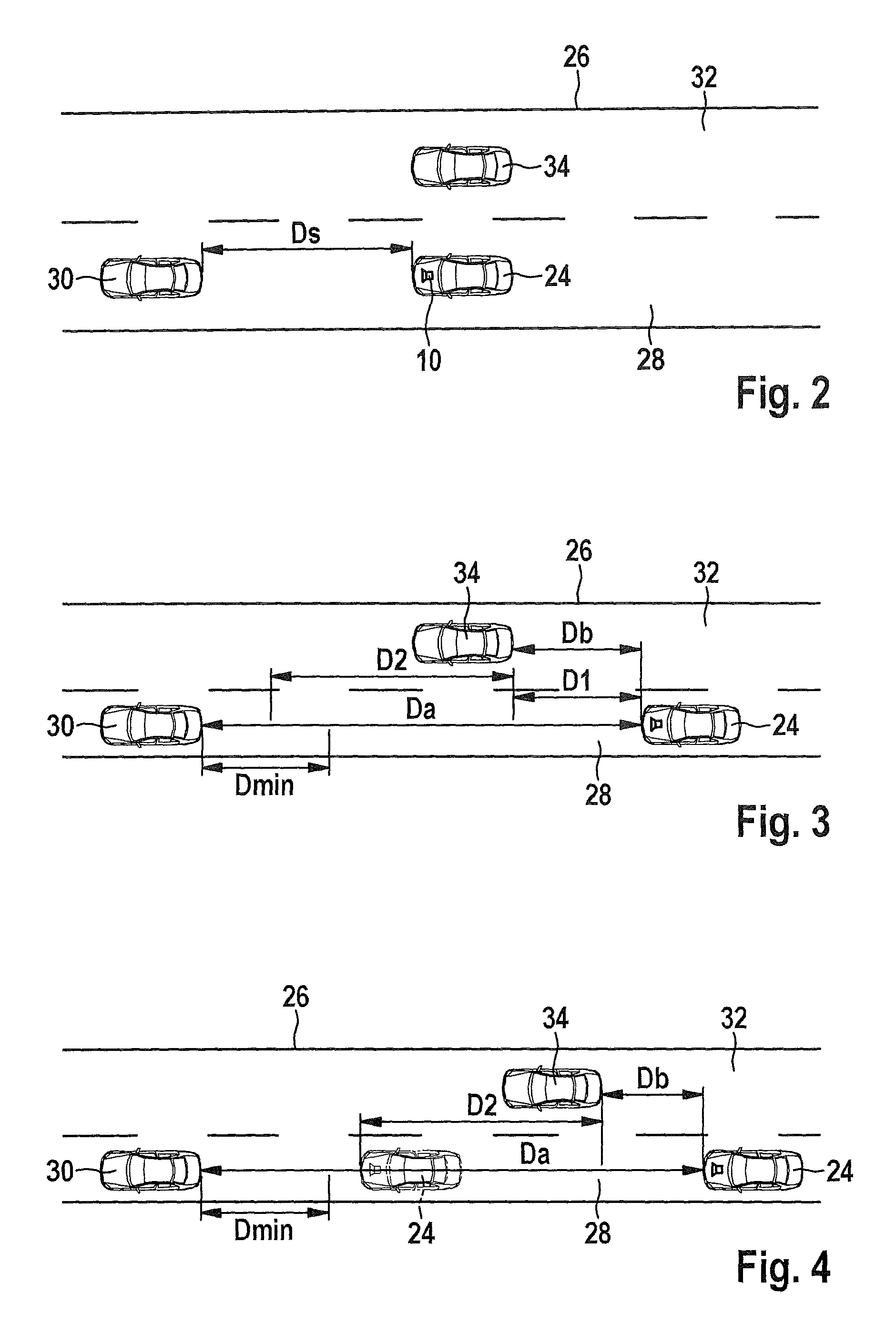Separation controller for motor vehicles
a separation controller and motor vehicle technology, applied in the direction of control devices, vehicle components, external condition input parameters, etc., can solve the problems of increasing the number of vehicles in the same direction, requiring a great deal of attention from drivers for an extended period of very closely spaced driving, and reducing the lateral separation between vehicles driving. , to achieve the effect of increasing driving convenience and increasing driving safety
- Summary
- Abstract
- Description
- Claims
- Application Information
AI Technical Summary
Benefits of technology
Problems solved by technology
Method used
Image
Examples
Embodiment Construction
[0016]The separation controller for a motor vehicle which is shown in FIG. 1 has a localization device 10, for example a radar sensor, that is installed in the vehicle at the front and serves to measure separations from and relative speeds of vehicles that are preceding in the own lane or in an adjacent lane.
[0017]Also present is an infrastructure sensor suite 12 that permits the width of the travel lane being traveled in by the own vehicle to be detected. This infrastructure sensor suite can be constituted, for example, by a video-evaluation and image-evaluation system that is capable of detecting lane markings on the roadway. Electively or additionally, however, the infrastructure sensor suite can also contain a navigation and communication system with which it is possible to ascertain whether the own vehicle is traveling at the time through a construction zone, in which usually the left lane or, when there are three lanes of travel in one direction, the center lane and the left l...
PUM
 Login to View More
Login to View More Abstract
Description
Claims
Application Information
 Login to View More
Login to View More - R&D
- Intellectual Property
- Life Sciences
- Materials
- Tech Scout
- Unparalleled Data Quality
- Higher Quality Content
- 60% Fewer Hallucinations
Browse by: Latest US Patents, China's latest patents, Technical Efficacy Thesaurus, Application Domain, Technology Topic, Popular Technical Reports.
© 2025 PatSnap. All rights reserved.Legal|Privacy policy|Modern Slavery Act Transparency Statement|Sitemap|About US| Contact US: help@patsnap.com



